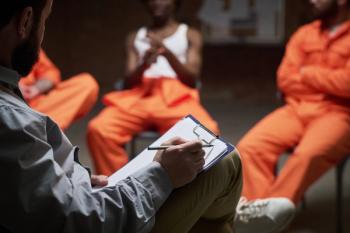
- Psychiatric Times Vol 19 No 4
- Volume 19
- Issue 4
The Psychiatric Expert Witness
What is a psychiatric expert and how does their role differ from that of the clinician? What must you consider before deciding to serve as an expert witness?
If psychiatry is often confusing and mysterious to the layperson, forensic psychiatry is even more confusing and mysterious -- even to psychiatrists. To allay some of this confusion and to demystify the subject, this overview attempts to briefly summarize some of the essentials of this fascinating field. This article is based on and condensed from a presentation at the 2001 U.S. Psychiatric & Mental Health Congress in Boston and is stimulated by the current rapid growth of interest and participation in forensic work (Berger, 1997; Gutheil, 1998; Melton et al., 1997). Forensic psychiatry embraces a host of functions, including civil, criminal, legislative, ethical, administrative, institutional and organizational issues; but here we focus on the role of expert witness in a civil or criminal case.
Forensic Psychiatry's Definitions of an Expert Witness
The American Academy of Psychiatry and the Law (AAPL), the national forensic psychiatric organization, defines forensic psychiatry as the application of psychiatric knowledge and skills to legal issues in legal contexts. Because expert work takes place in an adversary system, the subject can be heuristically explored in terms of various adversarial scenarios.
Expert witness versus clinical expertise. Most psychiatrists view themselves as having some expertise in the field, so why isn't everyone an expert witness? The answer here lies in the fact that expert witness is a role function, not a credential involving knowledge of a discipline such as psychiatry. While a fact witness may testify in court only on what was directly observed by the five senses, an expert witness is permitted by the court to draw conclusions from all data, even data not personally observed by that witness (e.g., hospital records). Expert witnesses are qualified (i.e., accepted by the court to give opinions and conclusions) by knowledge, training and experience to offer opinions on psychiatric issues in order to educate the court about matters not generally known to laypeople.
The fish out of water problem: treating versus testifying. Forensic work differs in several respects from clinical treatment. First, the goals of the expert are truth and justice rather than -- and, as noted below, sometimes in tension with -- the goals of alleviating patients' symptoms and protecting patient welfare. Because of various role incompatibilities, the treater should usually not serve as an expert (Schouten, 1993; Strasburger et al., 1997).
Second, the forensic role occurs in an adversary system where -- even if the expert is appointed by the judge -- the practitioner can usually count on one side being favorable and the other opposed to one's position. This adversarial climate stands in contrast to the alliance-based collaboration of the treatment team and setting.
In part, the adversary context explains why attorneys view the so-called "battle of the medical experts" as routine but the public finds it so dismaying. Naive spectators see the conflict between witnesses (which is necessary for a fair trial) as both anxiety-producing and somehow questioning of psychiatry's validity as a field (Gutheil, 1999).
Fundamentally, the expert witness' role resembles that of teacher: The expert teaches the retaining attorney about the psychiatry in a particular case and, in turn, may teach the jury in a comparable fashion. The most interesting aspect of this work is the challenge of translating information between psychiatry and law -- two fields with quite differing assumptions about the mind and the world -- to arrive at a psychiatric opinion applied to the legal issue. The challenge continues as the expert translates that translation into language accessible to a lay jury.
A Different Relationship: Patient Versus Examinee
Ethical scholars of the forensic context have pointed out that the traditional doctor-patient relationship does not apply between the forensic examiner and the examinee (Appelbaum, 1990). Since the goals of forensics are truth and justice -- rather than medicine's traditional health and welfare -- the core ethical principle of "Primum non nocere" does not fit well. After all, the testimony of a physician may, in fact, lead to such harmful outcomes as monetary loss, incarceration and, in capital cases, death. In addition, traditional rules about confidentiality are altered in the more public arena of the courtroom (Gutheil, 1998). Hence, the forensic psychiatrist is not actually practicing traditional medicine in forensic work.
Instead, as outlined in the ethics code of the AAPL (1995), the core ethical principles followed by expert witnesses are honesty and striving for objectivity. Honesty underscores the importance of experts keeping within their expertise and the science of the field in presenting opinions; objectivity addresses the goal of freedom from bias that an expert strives to achieve by identifying and managing prejudices. The expert who, instead of "selling time" (i.e., receiving an hourly fee for an independent opinion), "sells testimony" (i.e., is willing, for a fee, to say whatever the attorney wants said) is called a hired gun or other, even less complimentary names. Like clinicians who engage in sexual misconduct, hired guns are the bane of their profession, casting a pall over ethical practitioners in the field.
Types of Expert: Consulting Versus Testifying
All experts begin the relationship with the retaining attorney by serving as psychiatric consultants to the case at hand. The question, "What is the psychiatric dimension of this case?" is the primary issue. Experts may remain in that consultant role -- "behind the scenes," as it were -- to guide the attorney's understanding of the psychiatric aspects of the case or of the opposing expert's testimony. Alternatively, the expert might serve as a testifying expert. If the expert finds, after review of the entire database of the case, that the case has merit from the side of the retaining attorney, the expert may so state in a report to the court. Later, at the attorney's behest, the expert may proffer an expert opinion in sworn testimony at a deposition (i.e., oral examination under oath -- a part of discovery usually led by the opposing attorney) or in open court at a trial.
Part of the expert's challenge is to rise above the partisan position of consultation to one side of a case in an adversary context. In some cases, this challenge is made somewhat easier by the expert's appointment by the court itself, rather than by one side or the other.
Concluding Thoughts and Summary
While so brief an overview can only sketch the outlines of the field, it should be clear that the role of expert witness offers many interesting challenges, beginning with the need to shift from the clinical role of making patients better into the foreign setting of forensic work, serving truth and justice (Appelbaum, 1990; Gutheil, 1998). Functioning primarily as a teacher, the expert aids both the attorney and the jury in understanding vital psychiatric aspects of the case. Fascinating and difficult but rewarding, the role of expert psychiatric witness offers new perspectives on the legal system in society.
References:
References
1.
AAPL (1995), American Academy of Psychiatry and the Law Ethical Guidelines for the Practice of Forensic Psychiatry (revised). Available at: www.aapl.org/ethics.htm. Accessed Feb. 26, 2002.
2.
Appelbaum PS (1990), The parable of the forensic psychiatrist: ethics and the problem of doing harm. Int J Law Psychiatry 13(4):249-259.
3.
Berger SH (1997), Establishing a Forensic Psychiatric Practice: A Practical Guide. New York: W.W. Norton & Co. Inc.
4.
Gutheil TG (1998), The Psychiatrist as Expert Witness. Washington, D.C.: American Psychiatric Press.
.5
Gutheil TG (1999), A confusion of tongues: competence, insanity, psychiatry, and the law. Psychiatr Serv 50(6):767-773.
6.
Melton GB, Petrila J, Poythress NG, Slobogin C, eds. (1997), Psychological Evaluations for the Courts: A Handbook for Mental Health Professionals and Lawyers, 2nd ed. New York: Guilford Press.
7.
Schouten R (1993), Pitfalls of clinical practice: the treating clinician as expert witness. Harv Rev Psychiatry 1(1):64-65.
8.
Strasburger LH, Gutheil TG, Brodsky A (1997), On wearing two hats: role conflict in serving as both psychotherapist and expert witness. Am J Psychiatry 154(4):448-456 [see comments].
Articles in this issue
almost 24 years ago
Mental Health Consequences of Conflict Neglectedalmost 24 years ago
Dropping the Lambalmost 24 years ago
Psychiatrists and Mandatory Reporting of Domestic Violencealmost 24 years ago
New Mexico Psychologists Win Right To Presalmost 24 years ago
Does the Insanity Defense Have a Legitimate Role?almost 24 years ago
Is Computer Addiction a Unique Psychiatric Disorder?almost 24 years ago
Severe Psychiatric Disorders May Be Increasingalmost 24 years ago
Dispatch From the Repressed-Memory Legal Frontalmost 24 years ago
Personality Disorders in Employment Litigationalmost 24 years ago
Does the Insanity Defense Have a Legitimate Role?Newsletter
Receive trusted psychiatric news, expert analysis, and clinical insights — subscribe today to support your practice and your patients.







